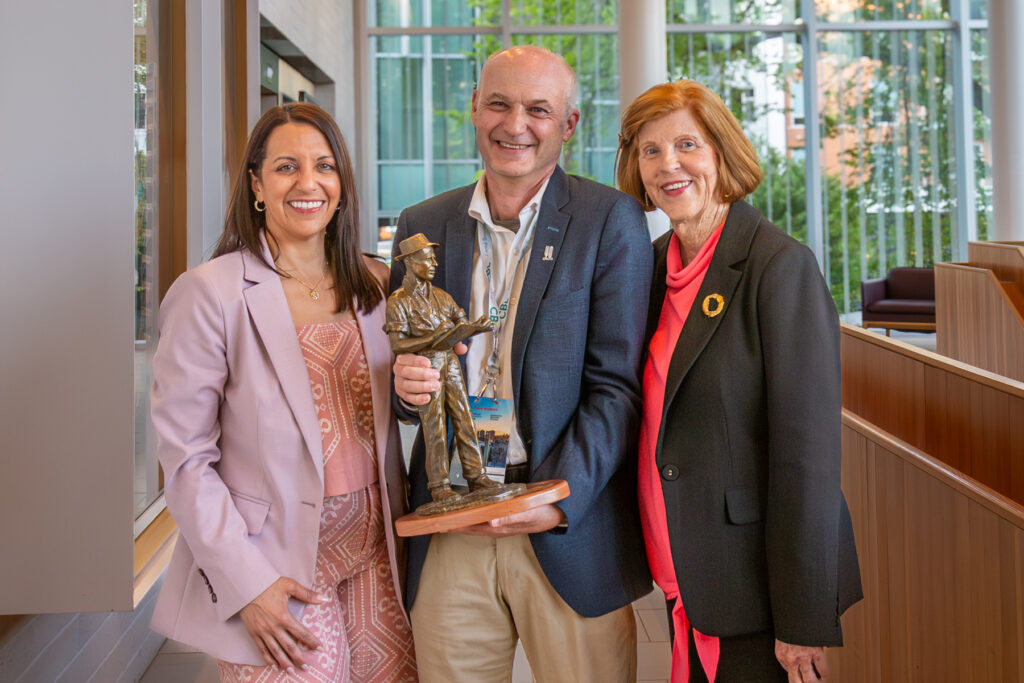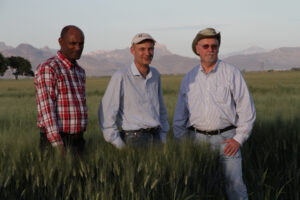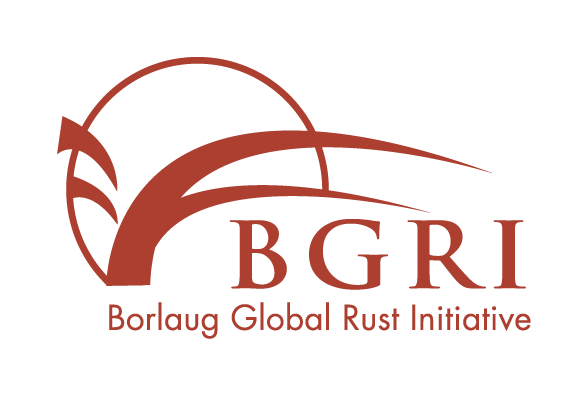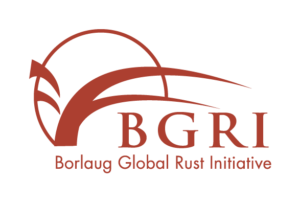
Recognized for advancing global wheat rust surveillance, Dave Hodson was honored with the 2025 Norman Borlaug Award from BGRI leaders Maricelis Acevedo and Jeanie Borlaug Laube.
Dave Hodson, a principal scientist at CIMMYT, received the 2025 Norman Borlaug Award for Outstanding Service to the Global Wheat Community in recognition of his global leadership in wheat rust surveillance and forecasting. The Borlaug Global Rust Initiative (BGRI) presented the award to honor his decades of work protecting wheat production from one of agriculture’s most persistent disease threats.
The award was presented June 18 during the BGRI Technical Workshop at the 17th International Cereal Rusts and Powdery Mildews Conference (ICRPMC2025) in Vancouver, Canada. Hodson received the honor in front of an international audience of scientists, policymakers and agricultural leaders.
For more than two decades, Hodson helped lead the global response to wheat rust pathogens by building cross-border partnerships and deploying technologies that improved detection and prediction. From the foundational efforts of the Durable Rust Resistance in Wheat (DRRW) and Delivering Genetic Gain in Wheat (DGGW) projects to his more recent leadership of the Wheat Disease Early Warning Advisory Systems (DEWAS), Hodson played a central role in developing one of the most sophisticated agricultural early warning systems in the world.

Dave Hodson, center, with Bekele Abeyo and Ronnie Coffman at the launch of the Delivering Genetic Gain in Wheat project in Obregon, Mexico in 2016.
“Dave has been a cornerstone of the BGRI’s efforts to combat wheat rust,” said Ronnie Coffman, vice chair of the BGRI and international professor emeritus of plant breeding and genetics in the School of Integrative Plant Science (SIPS) at Cornell University. “His work bridges disciplines and geographies. He not only advanced the science of disease forecasting, but also built the trust and partnerships that made global surveillance possible.”
Hodson’s work enabled a global shift from reactive disease management to proactive, data-driven risk mitigation. Over the years, he played a central role in developing surveillance networks, predictive tools, and international partnerships that helped countries respond more effectively to emerging wheat rust threats. Most recently, he has led Wheat DEWAS, which provides national programs in high-risk regions with real-time forecasts, diagnostic tools and field-level advisories. These tools empower countries in East Africa and South Asia to take early action to protect crops, prevent epidemics and improve the resilience of wheat systems.
“Dave’s work exemplifies the spirit of Norman Borlaug. He applies science in service of humanity,” said Maricelis Acevedo, director for science at the BGRI, co-director of DEWAS, and a research professor in SIPS in the College of Agriculture and Life Sciences at Cornell University. “His vision and technical expertise, coupled with his commitment to international collaboration, strengthened the resilience of wheat systems across continents.”
Jeanie Borlaug Laube, chair of the BGRI and daughter of Norman Borlaug, praised Hodson’s impact on global food security. “My father believed deeply in the power of international cooperation to fight hunger,” she said. “Dave’s work reflects that same belief. Through shared science, we can protect food security for the world’s most vulnerable.”
The Norman Borlaug Award for Outstanding Service to the Global Wheat Community is presented to individuals whose work has made a lasting, positive impact on wheat production and disease resilience. Hodson’s contributions, shaped by scientific rigor and guided by humanitarian values, have strengthened wheat systems worldwide. His career sets a benchmark for future global disease surveillance efforts.





